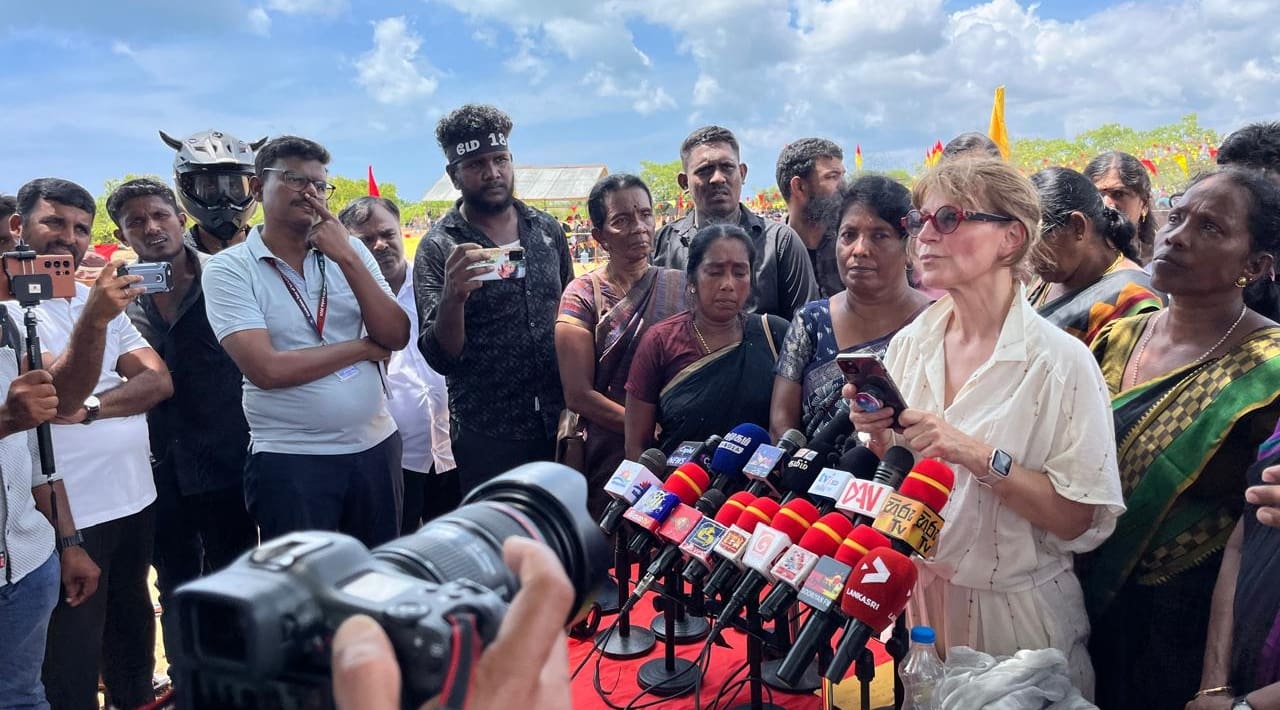Speaking at a commemoration marking the 15th anniversary of the end of Sri Lanka’s internal armed conflict on May 18, 2009, which culminated in the brutal Mullivaikkal offensive where countless civilian lives were lost, Agnès Callamard, Secretary General at Amnesty International, said:
“Today’s anniversary is a grim reminder of the collective failure of the Sri Lankan authorities and the international community to deliver justice to the many victims of Sri Lanka’s three-decade-long internal armed conflict. It is sobering to stand in the same place where, 15 years ago, countless civilian lives were lost during the last days of the war.
“Ahead of this event, we have witnessed clampdown on the memory initiatives, including arrests, arbitrary detentions and deliberately skewed interpretations of the Tamil community’s attempts to remember their people lost to the war. Authorities must respect the space for victims to grieve, memorialize their loved ones and respect their right to freedom of expression and peaceful assembly.
“UN investigations have found credible evidence of crimes under international law and other violations of international human rights and humanitarian law committed by those on both sides of the conflict, yet there has been little in the way of an independent or impartial national inquiry into such serious crimes. Meanwhile, the families of those who were forcibly disappeared during the conflict have been left to search desperately for their loved ones. It is truly heartbreaking to hear from victims how long they have been demanding justice in vain.
“The Sri Lankan government is best placed to provide answers to the victims, however numerous domestic mechanisms to establish accountability in the last 15 years have been mere window dressing. The report by the UN Office of the High Commissioner for Human Rights released earlier this week too reiterates the gaping deficits in Sri Lanka’s accountability initiatives that has contributed to impunity remaining deeply entrenched.
“Tens of thousands of victims and their families continue to suffer in anguish as they await truth, justice, and reparations. We stand in solidarity with them here in Mullivaikkal today.”
Background:
During the internal armed conflict from 1983 to 2009, Sri Lankan government forces and their armed political affiliates committed extrajudicial killings, enforced disappearances and acts of torture against Tamils suspected of links to the Liberation Tigers of Tamil Eelam (LTTE). The LTTE also launched indiscriminate suicide attacks on civilian targets like buses and railway stations, assassinated politicians and critics, and forcibly recruited children as fighters.
Violations of international human rights and humanitarian law peaked in the final months of the conflict, most notably in May 2009 when some 300,000 displaced civilians were trapped between the warring parties. It was at Mullivaikkal, a small village in Mullaitivu district in the Northern Province of Sri Lanka, where the final offensive between the Sri Lankan forces and the LTTE took place, killing at least 40,000 civilians according to UN estimates.
Each year, on May 18, a memorial event at Mullivaikkal brings together thousands of war-affected Tamils to commemorate those lost to the war and demand justice and accountability.
The Office of the High Commissioner for Human Rights (OHCHR) this week released a report on accountability for enforced disappearances in Sri Lanka.
CONTACT: [email protected]

